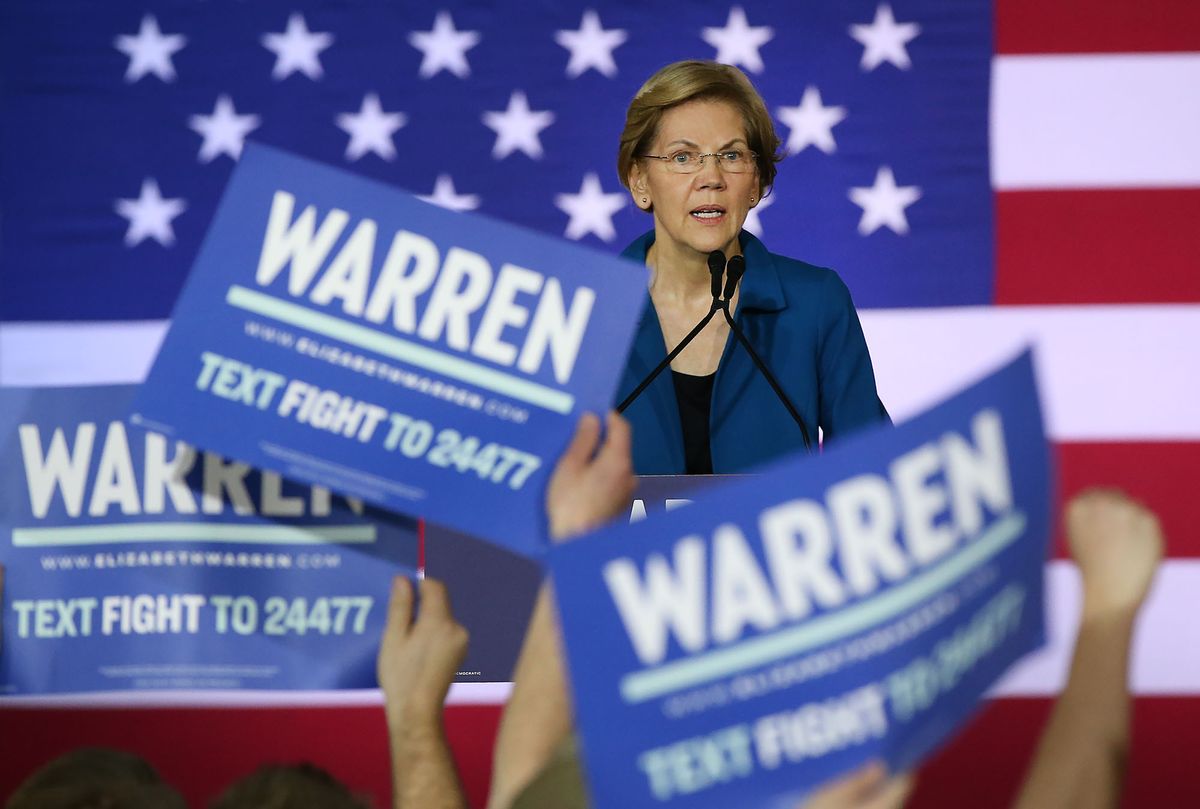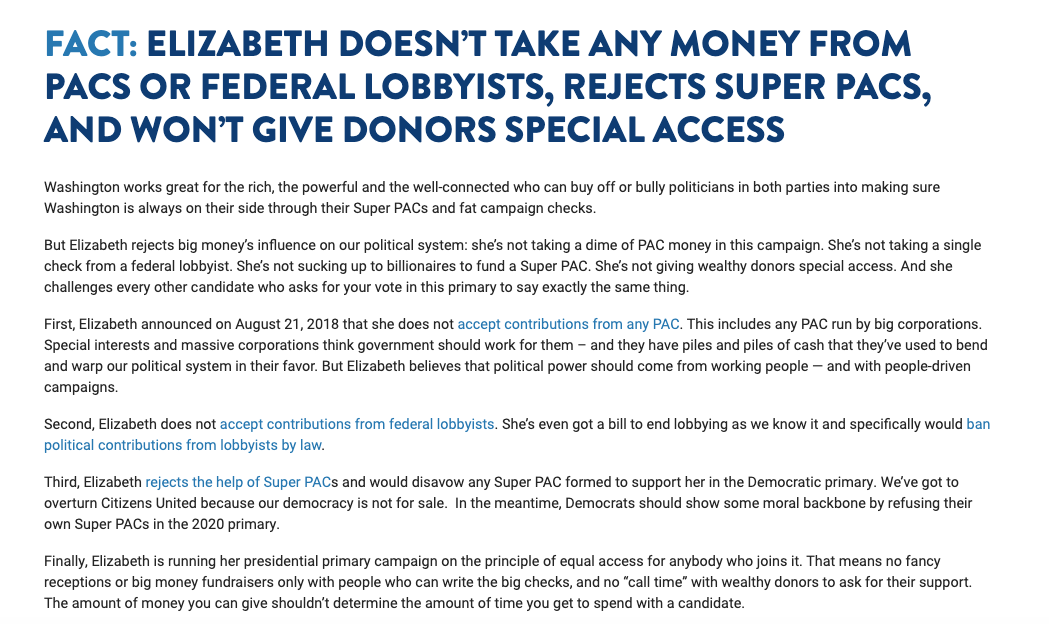Elizabeth Warren’s reversal renews debate around super PACs in 2020 election

A few minutes every morning is all you need.
Stay up to date on the world's Headlines and Human Stories. It's fun, it's factual, it's fluff-free.
Democratic presidential candidate Elizabeth Warren has been taking heat this week for reversing her stance on accepting money from super PACs (short for super political action committees).
The Massachusetts Senator had been one of the few holdouts in this campaign who refused to accept the support of such groups, which are permitted to engage in unlimited political spending.
As a member of the progressive wing of the Democratic Party, Warren has struggled in recent months to distinguish herself from the current frontrunner, Vermont Senator Bernie Sanders. Sanders has also been critical of super PACs and “dark money” in the election, but Our Revolution, a group he started that supports his campaign and those of other progressive politicians, has also been accused of acting like a super PAC.
Elizabeth Warren changes her stance on super PACs
Since she first began her campaign, Warren has spoken out against super PACs. Her refusal to accept the financial support of such groups was backed up further by a pledge to skip high-dollar fundraisers that would court wealthy donors. Warren urged her fellow Democrats to follow suit.
However, as she noted in an interview on February 20, “all the men” still in the race either had the support of super PACs or were billionaires self-funding their own campaigns (i.e. Mike Bloomberg). Amy Klobuchar, who also didn’t initially have a super PAC, is the only other woman still in the race who has appeared in recent Democratic debates.
For that reason, Warren said, she was now open to receiving the support of super PACs. Accepting super PAC support would allow Warren to take advantage of a recent surge in the polls. That surge follows an attention-grabbing performance at the Las Vegas debate on Wednesday, February 19.
When questioned about her changing stance at a CNN Town Hall on Thursday, Warren again justified her reversal, saying, “Look, if the other candidates would all say, ‘You know, you’re right; let’s do the primary from this point forward without super PACs,’ I’ll lead the charge. Let’s do it. Let’s all disavow super PACs.”
On her official campaign website, it still says Warren will reject “the help of super PACs and would disavow any super PAC formed to support her in the Democratic primary.”

Citizens United and the origin of super PACs
During the 2008 presidential election, a conservative group, Citizens United, was blocked by the Federal Election Commission (FEC) from airing a film critical of Hillary Clinton, who was a candidate in that year’s Democratic primaries. Citizens United sued the FEC and the case wound up before the Supreme Court.
On January 21, 2010, the Supreme Court ruled 5-4 in favor of the petitioners in Citizens United v. Federal Election Commission. The court determined that restrictions put on corporations and outside groups engaging in political action was equivalent to suppressing free speech. The decision was immediately controversial.
In his dissenting opinion in the case, Justice John Paul Stevens expressed fears about the possible “corporate domination of the electoral process” the decision might allow. Then-President Barack Obama criticized the decision in his State of the Union address, saying it would “open the floodgates” for unlimited spending from special interest groups.
Citizens United set the precedent for super PACs. Whereas regular PACs existed prior to 2010 and can contribute directly to political candidates, they are limited in the amount they can contribute.
Super PACs are different in that they place no limits on the amount of money they can collect or spend. Donors to super PACs must be disclosed, but donors can include groups who do not have to disclose their members. These are referred to as “dark money” groups.
In the years since the Citizens United decision, super PACs have spent over US$3 billion dollars in US elections.
Sanders’ Our Revolution
Warren has received criticism for her changing stance, including from supporters of Bernie Sanders, Warren’s progressive rival.
On Thursday, Shaun King, a self-described “surrogate” for Bernie Sanders, tweeted about Warren’s reversal. He wrote, “Was cool while it lasted,” while retweeting a Warren tweet from 2019 in which she said, “I won’t take a dime of PAC money in this campaign.”
Sanders has also received criticism for “dark money” that his campaign has accumulated through Our Revolution. Our Revolution is a nonprofit political action organization that broke off from Sanders’ 2016 campaign and supports numerous progressive candidates, including Sanders’ 2020 campaign. It doesn’t pay for advertising but it does fundraise for progressive causes.
Despite Sanders stated opposition to super PACs, a January AP News report found that Our Revolution “functions much the same as one” and doesn’t have to disclose its donors.
While the group has voluntarily revealed many of its donors, the AP found “Our Revolution has taken in nearly [US]$1 million from donors who gave more than the limits and whose identities it hasn’t fully disclosed.” That includes six-figure contributions.
A spokesperson for the Sanders campaign told the AP that “Sen. Bernie Sanders and his presidential campaign, in accordance with Senate ethics rules, does not direct or coordinate with Our Revolution.”
Neither The Sanders and Warren campaigns responded to our comment requests.
[article_ad]




Comments ()